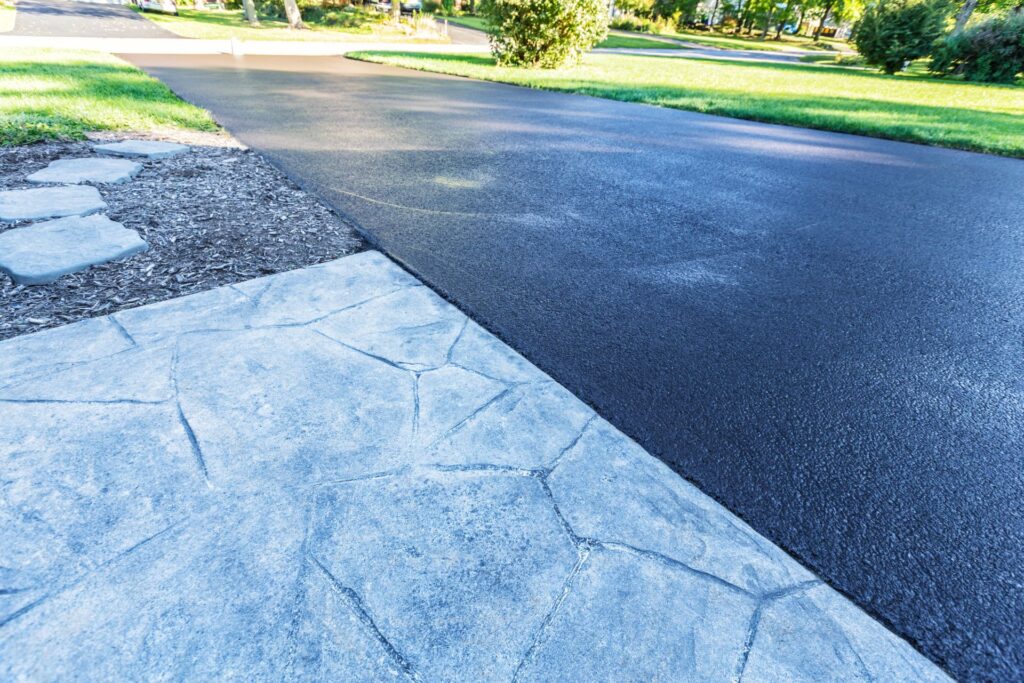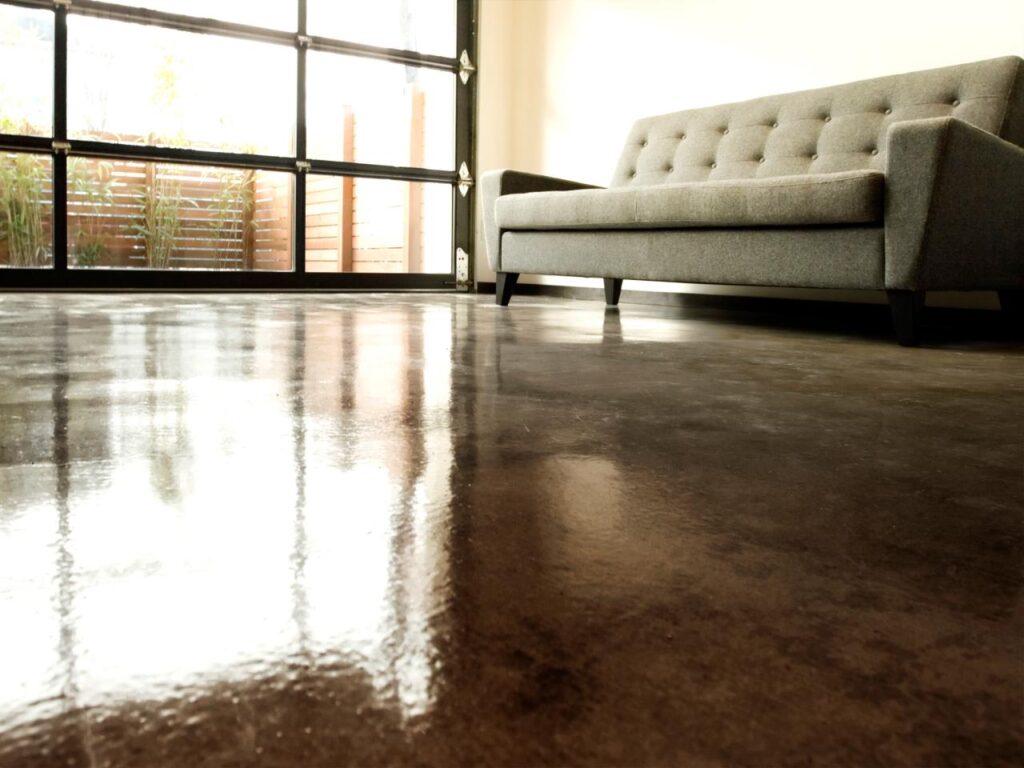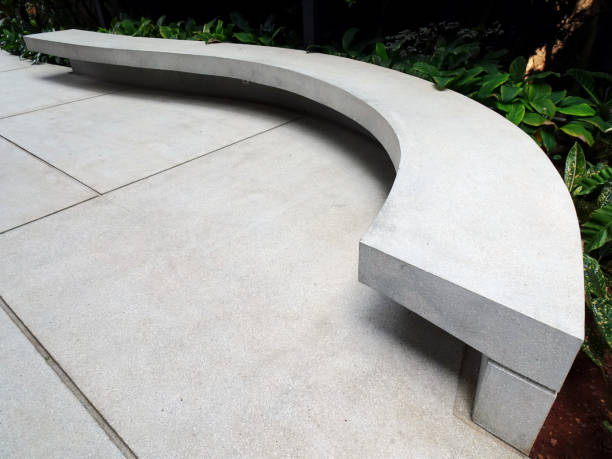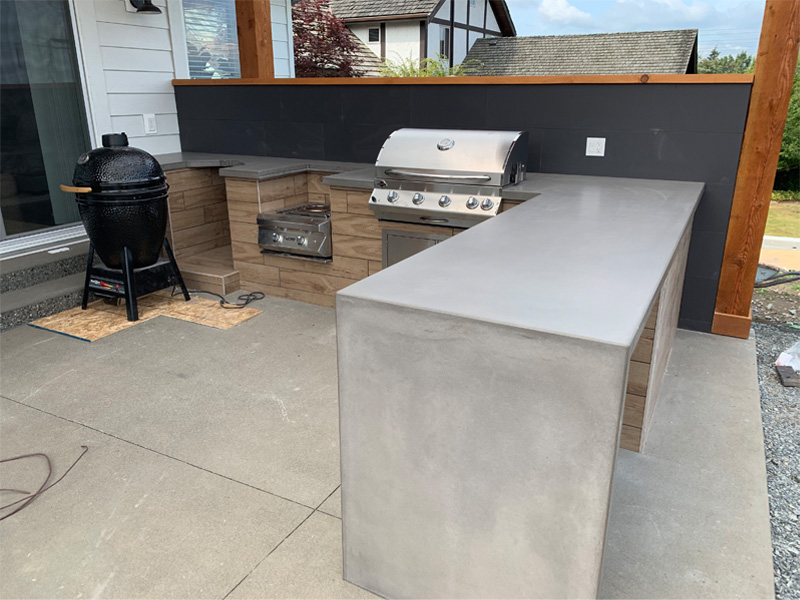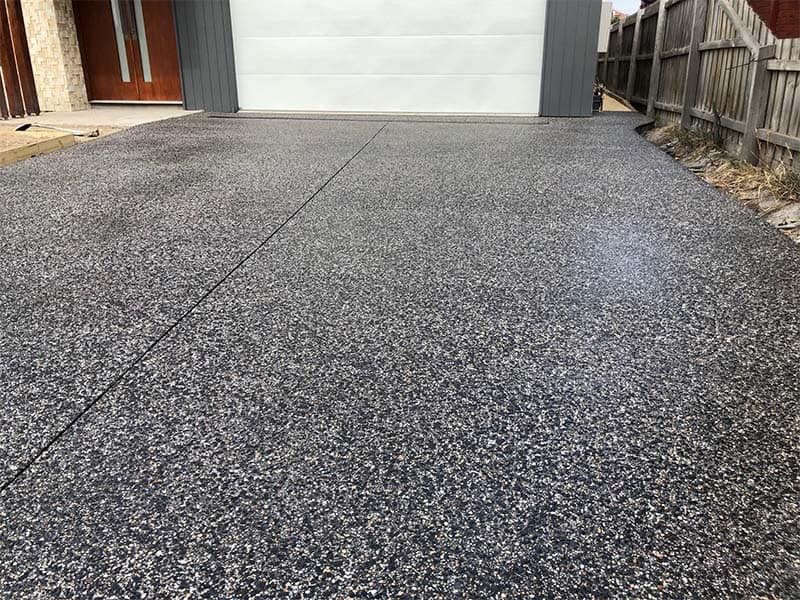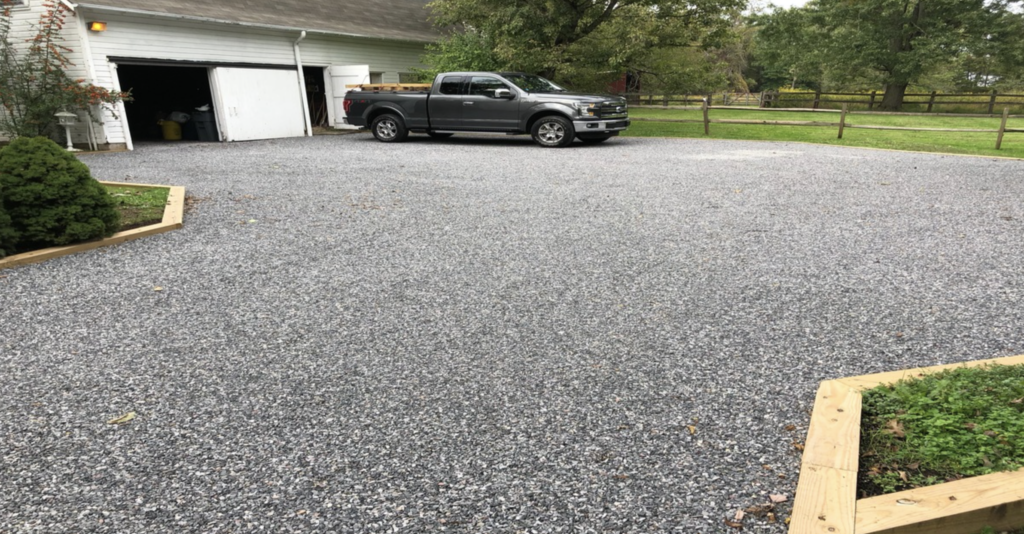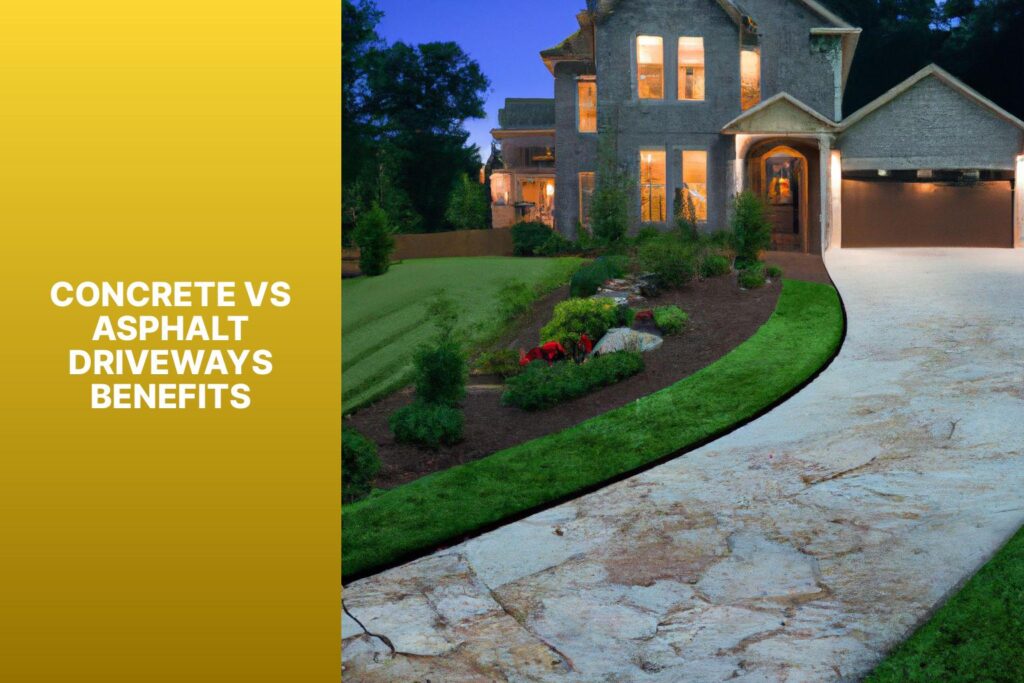Welcome to our comprehensive guide on whether it’s necessary to seal a concrete driveway. Homeowners often find themselves debating this issue as they strive to maintain the longevity and appearance of their driveways. Concrete driveways, known for their durability and strength, can face various challenges such as cracks, stains, and weather damage over time. In this article, we will explore the purpose and benefits of sealing, potential drawbacks, and key considerations to help you make an informed decision. Whether you’re dealing with a newly installed driveway or maintaining an existing one, understanding the role of sealing can significantly impact its performance and lifespan. Let’s delve into the details and see if sealing is the right choice for your concrete driveway.
Sealing a concrete driveway is essential to protect it from stains, weather damage, and wear and tear. A quality sealer creates a barrier that prevents oil, chemicals, and moisture from penetrating the surface, enhancing the driveway’s durability and appearance. Regular sealing can extend the lifespan of your driveway, making it a worthwhile investment for homeowners looking to maintain and preserve their concrete surfaces.
- Understanding Concrete Driveways
- The Purpose Of Sealing A Concrete Driveway
- Benefits Of Sealing A Concrete Driveway
- Potential Drawbacks Of Sealing
- Factors To Consider Before Sealing
- The Sealing Process
- Alternatives To Sealing
- Expert Opinions And Case Studies
- FAQs: About Is it Necessary To Seal A Concrete Driveway
- Why should I seal my concrete driveway?
- How often should I seal my concrete driveway?
- What are the different types of concrete sealers?
- Can I seal my concrete driveway myself?
- What is the cost of sealing a concrete driveway?
- How long does it take to seal a concrete driveway?
- What are the signs that my driveway needs to be resealed?
- What are the potential drawbacks of sealing a concrete driveway?
- Are there alternatives to sealing a concrete driveway?
- Does sealing a concrete driveway affect its appearance?
- Conclusion
Understanding Concrete Driveways
What is a Concrete Driveway?
A concrete driveway is a paved surface commonly found in residential areas, providing a durable and reliable space for parking vehicles. These driveways are constructed using a mixture of cement, sand, gravel, and water, which hardens into a solid, stone-like material. Concrete driveways are popular due to their longevity and ability to withstand heavy loads, making them an ideal choice for homeowners who need a sturdy parking solution.
Properties of Concrete
Concrete is renowned for its impressive durability and strength, which are its standout features. Once cured, concrete forms a robust surface that can endure significant wear and tear from vehicles and environmental factors. In addition to its strength, concrete offers aesthetic versatility. It can be tinted in various colors, stamped with patterns, or polished to achieve a sleek, modern look. This adaptability allows homeowners to customize their driveways to match their overall landscaping and architectural style.
1. Durability: One of the key benefits of concrete is its long-lasting nature. A well-maintained concrete driveway can last for decades, resisting damage from heavy loads and frequent use.
2. Strength: Concrete’s compressive strength makes it ideal for driveways, as it can support the weight of multiple vehicles without significant wear.
3. Aesthetics: Modern concrete driveways can be aesthetically pleasing, with options for customization that include various finishes and colors, enhancing the curb appeal of a property.
Common Issues with Concrete Driveways
Despite its many advantages, concrete driveways are not without their potential issues. Homeowners should be aware of common problems that can arise over time:
1. Cracks: One of the most frequent issues with concrete driveways is cracking. These can occur due to various reasons, including soil movement, freeze-thaw cycles, and heavy loads. While small cracks are often only a cosmetic concern, larger cracks can compromise the driveway’s integrity and may require professional repair.
2. Stains: Concrete driveways are prone to staining from oil leaks, tire marks, and other substances. These stains can be challenging to remove and may detract from the driveway’s appearance.
3. Weather Damage: Extreme weather conditions can take a toll on concrete. In colder climates, freeze-thaw cycles can cause the concrete to expand and contract, leading to cracks. In areas with heavy rainfall, water can seep into the concrete, causing erosion and weakening the material over time.
Understanding these common issues can help homeowners take proactive measures to maintain their concrete driveways, ensuring they remain in good condition for years to come. Regular maintenance, such as sealing cracks and cleaning stains promptly, can mitigate these problems and extend the life of the driveway.

The Purpose Of Sealing A Concrete Driveway
What Does Sealing Mean?
Sealing a concrete driveway involves applying a protective layer over the concrete surface to enhance its durability and appearance. This layer acts as a barrier, safeguarding the concrete from various elements like water, oil, chemicals, and UV rays. Over time, concrete can become susceptible to wear and tear due to exposure to weather conditions, vehicle traffic, and other factors. By sealing the driveway, you create a shield that helps prevent damage, extends the lifespan of the concrete, and keeps it looking fresh and appealing.
Types of Sealers
When it comes to sealing a concrete driveway, there are several types of sealers to choose from, each offering distinct benefits:
Penetrating Sealers: These sealers soak into the concrete, creating a chemical barrier that protects from within. They are particularly effective at repelling water and are ideal for driveways in wet or cold climates.
Acrylic Sealers: Acrylic sealers form a thin, protective film on the surface of the concrete. They are available in both water-based and solvent-based formulas, providing a range of finishes from matte to high gloss. Acrylic sealers are popular for their ease of application and ability to enhance the color of the concrete.
Epoxy Sealers: Known for their durability, epoxy sealers create a thick, hard layer on the concrete surface. They offer excellent protection against chemicals, stains, and abrasion, making them suitable for high-traffic areas. However, they can be more challenging to apply and may yellow over time when exposed to UV light.
How Sealers Work
The primary function of sealers is to protect the concrete by preventing the penetration of harmful substances. Here’s how they work:
Barrier Formation: Sealers create a physical barrier on the concrete surface, blocking water, oils, chemicals, and other contaminants from seeping into the concrete. This helps prevent stains, corrosion, and freeze-thaw damage.
Surface Hardening: Some sealers, especially epoxy and certain penetrating sealers, harden the concrete surface, making it more resistant to wear and tear. This is particularly beneficial for driveways that endure heavy vehicle traffic.
UV Protection: Sealers with UV-resistant properties protect the concrete from the sun’s harmful rays, which can cause fading and degradation over time. This is crucial for maintaining the appearance and structural integrity of the driveway.
Enhancing Aesthetics: Sealers can enhance the appearance of the concrete by bringing out its natural colors and providing a polished finish. This not only improves curb appeal but also adds value to the property.
In summary, sealing a concrete driveway is a vital step in maintaining its longevity and appearance. By understanding the different types of sealers and how they work, homeowners can make informed decisions to protect their driveways from damage and keep them looking their best for years to come.
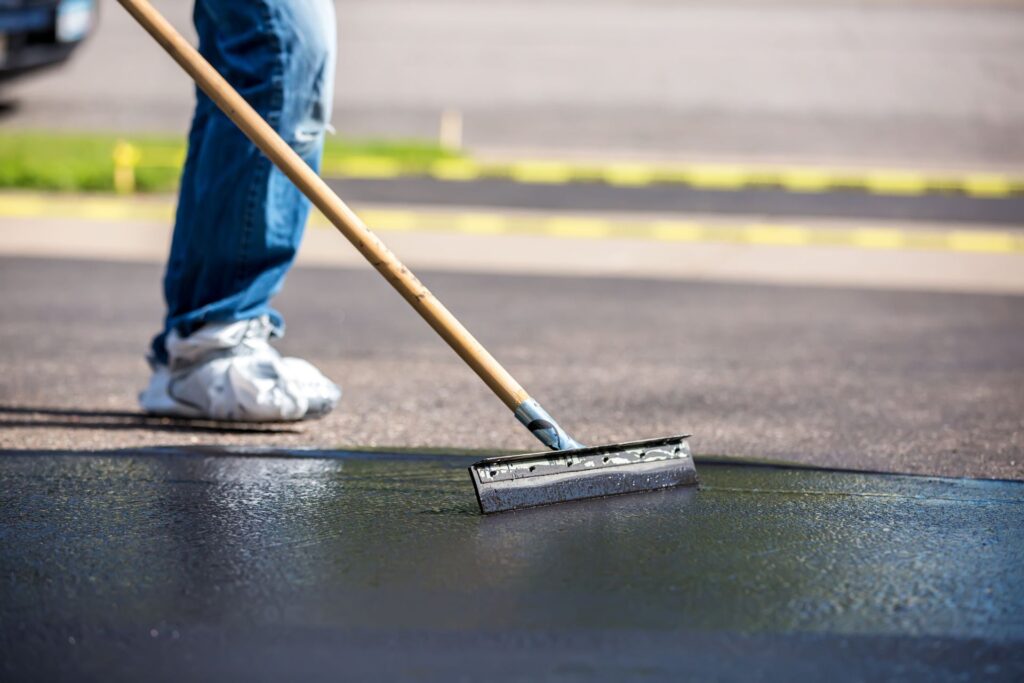
Benefits Of Sealing A Concrete Driveway
Protection Against Stains and Spills
Sealing a concrete driveway acts as a protective barrier against various types of stains and spills. When you seal your driveway, you’re essentially creating a shield that prevents oil, chemicals, and other substances from penetrating the porous surface of the concrete. This means that even if your car leaks oil or you accidentally spill some household chemicals, they won’t seep into the concrete and leave unsightly stains. Instead, these substances can be easily wiped off, keeping your driveway looking clean and well-maintained.
Enhanced Durability
Concrete driveways are subjected to a lot of stress from daily use, including the weight of vehicles and foot traffic. Sealing the concrete significantly enhances its durability by making it more resistant to wear and tear. Over time, unsealed concrete can develop cracks and surface damage due to constant pressure and exposure to the elements. Sealing helps prevent these issues by providing a tough, resilient surface that can withstand heavy use. This means fewer repairs and a longer lifespan for your driveway, ultimately saving you time and money.
Weather Resistance
One of the major benefits of sealing a concrete driveway is its ability to protect against harsh weather conditions. Sealed concrete is much better equipped to handle freeze-thaw cycles, where the driveway repeatedly freezes and thaws, potentially causing cracks and other damage. Additionally, sealing provides a layer of protection against UV rays, which can cause the concrete to fade and deteriorate over time. Moisture is another culprit that can damage concrete, leading to mold and mildew growth. Sealing helps in repelling water, ensuring that your driveway remains in top condition regardless of the weather.
Improved Appearance
A sealed concrete driveway not only functions better but also looks better. Sealing enhances the aesthetic appeal of your driveway by maintaining its color and finish. Over time, unsealed concrete can look dull and worn out, but a sealed surface retains its fresh and polished appearance. Whether you prefer a glossy or matte finish, sealing can help you achieve the look you want while also providing the practical benefits of protection and durability. This improved appearance can boost your home’s curb appeal and make your property look more attractive overall.
By understanding these benefits, homeowners can make an informed decision about sealing their concrete driveways, ensuring they maintain both functionality and beauty for years to come.
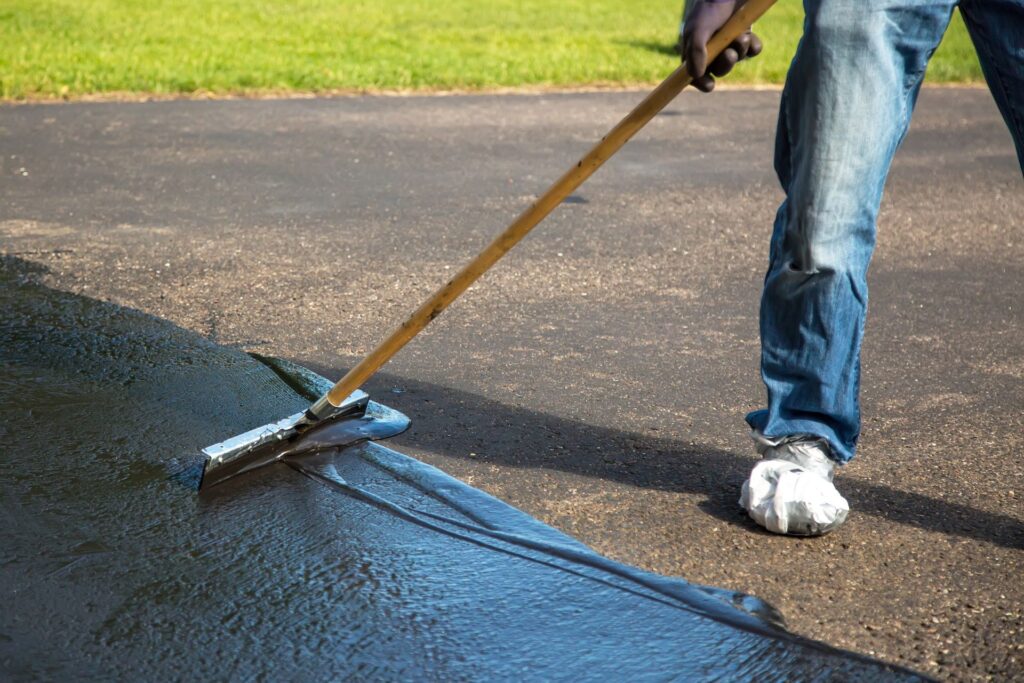
Potential Drawbacks Of Sealing
Cost Considerations
Sealing your driveway can be a valuable investment, but it’s essential to understand the associated costs before proceeding. The initial cost of sealing can vary depending on the size of your driveway, the type of sealant used, and the professional service fees if you choose to hire someone. On average, homeowners might spend between $100 to $400 for a standard-sized driveway.
However, the expenses don’t stop there. Driveway sealing is not a one-time job; it requires regular maintenance to keep your driveway in top condition. Most experts recommend resealing every two to three years, which adds to the ongoing costs. Each resealing session might cost slightly less than the initial application, but over the lifespan of your driveway, these costs can accumulate significantly. It’s crucial to budget for these recurring expenses to avoid unexpected financial strain.
Maintenance Requirements
Sealing a driveway is not a set-and-forget task. To maintain the protective layer and ensure your driveway remains in good shape, periodic resealing is necessary. This maintenance can be labor-intensive, particularly if you opt to do it yourself. The process involves thoroughly cleaning the driveway, allowing it to dry completely, and then applying the sealant evenly across the surface.
For those who prefer professional assistance, the labor costs will add up over time. Even though hiring a professional can save you time and ensure a more precise application, it is an additional expense that needs to be factored into your overall home maintenance budget. Furthermore, neglecting these regular resealing intervals can lead to the protective layer wearing off, leaving your driveway vulnerable to cracks, stains, and other damage.
Possible Issues with Incorrect Application
Proper application of driveway sealant is critical to achieving the desired protective effects. When the sealant is applied incorrectly, several issues can arise, compromising both the appearance and functionality of your driveway. One common problem is peeling, where the sealant starts to lift and separate from the driveway surface. This not only looks unattractive but also exposes parts of the driveway to potential damage.
Uneven coverage is another issue that can occur if the sealant is not spread uniformly. This can lead to sections of the driveway having different levels of protection, with some areas being more susceptible to wear and tear than others. Improper application can also result in streaks and blotches, detracting from the overall aesthetic appeal of your driveway.
To avoid these problems, it’s crucial to follow the manufacturer’s instructions meticulously if you’re applying the sealant yourself. Alternatively, hiring a professional can mitigate the risk of incorrect application, ensuring a smooth and even finish that provides optimal protection for your driveway.
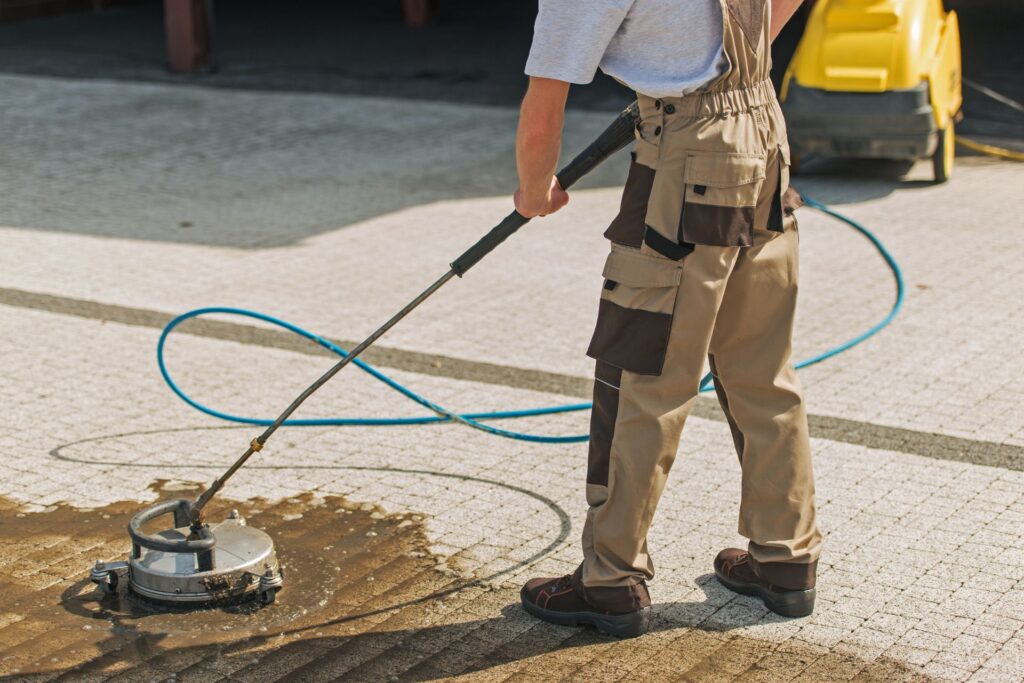
Factors To Consider Before Sealing
Sealing your driveway is a significant investment in its longevity and appearance. Before you dive into this project, it’s essential to weigh several crucial factors. Here, we break down the primary considerations to ensure you make the best decision for your specific situation.
Climate and Weather Conditions
The local climate plays a pivotal role in determining the necessity and timing of sealing your driveway. In regions with extreme temperatures, whether hot or cold, sealing can help protect the concrete from thermal expansion and contraction, which can lead to cracks and other damage. In areas with frequent rainfall or snow, a good sealant prevents water penetration, which can cause the concrete to weaken over time. It’s best to seal your driveway during dry, moderate weather to ensure optimal adhesion and drying.
Driveway Usage
Another critical factor is the amount and type of traffic your driveway endures. For driveways that see heavy use, such as those with multiple vehicles or frequent parking of large, heavy trucks, sealing can help maintain the surface’s integrity and prevent wear and tear. Conversely, driveways with light traffic might not need sealing as often. Consider how your driveway is used daily and choose a sealing schedule that aligns with its usage patterns.
Age and Condition of the Driveway
The age and current condition of your driveway also impact whether sealing is beneficial. New driveways typically benefit from a sealing coat to protect against early wear and tear, extending their lifespan right from the start. Older driveways, especially those showing signs of aging like cracks, chips, or surface wear, can also benefit from sealing. However, significant damage might require repairs before sealing to ensure the best results.
Type of Concrete and Finish
Lastly, the type of concrete and its finish influence the need for sealing. Different concrete compositions have varying porosity levels, affecting how well they absorb sealant. For example, decorative concrete finishes, such as stamped or colored concrete, often require sealing to maintain their appearance and prevent fading. In contrast, plain concrete might be more resilient but still benefits from periodic sealing to protect against environmental factors.
By considering these factors—climate and weather conditions, driveway usage, age and condition of the driveway, and type of concrete and finish—you can make an informed decision about when and how to seal your driveway. Proper sealing not only enhances the look of your driveway but also extends its life, making it a worthwhile investment.

The Sealing Process
Preparation Steps
Before applying the sealer to your driveway, it’s crucial to prepare the surface properly to ensure the best results. Start by thoroughly cleaning the driveway. Remove any dirt, debris, and stains using a pressure washer or a stiff brush and a cleaning solution. Pay special attention to oil stains or any stubborn marks, as these can prevent the sealer from adhering properly.
Next, inspect the driveway for any cracks or potholes. Repair these imperfections using a suitable crack filler or patching compound. This step is essential because sealing over damaged areas can lead to further deterioration. Allow the repairs to fully cure before moving on to the sealing process. Proper preparation not only enhances the effectiveness of the sealer but also extends the lifespan of your driveway.
Application Techniques
Once your driveway is clean and repaired, you can begin the sealing process. The tools you’ll need include a sealer, a paint roller or a large squeegee, and a mixing tool. Start by thoroughly mixing the sealer according to the manufacturer’s instructions. This ensures a consistent application and optimal performance.
Begin at one end of the driveway and pour a small amount of sealer onto the surface. Use the squeegee or roller to spread the sealer evenly, working in small sections at a time. Apply the sealer in a thin, even coat, and avoid pooling, as thick layers can lead to cracking. For best results, work in a systematic manner, overlapping each pass slightly to ensure complete coverage. If necessary, apply a second coat after the first one has dried, following the same technique. This second coat can provide additional protection and enhance the driveway’s appearance.
Drying and Curing Time
After the sealer has been applied, it’s important to allow sufficient drying and curing time before using your driveway. Typically, the drying time can range from 24 to 48 hours, depending on the weather conditions and the type of sealer used. Warmer temperatures and low humidity can speed up the drying process, while cooler, damp conditions may extend it.
During the drying period, keep the driveway free from traffic, including foot traffic, to prevent any damage to the fresh sealer. Once the initial drying time has passed, the sealer will continue to cure and harden over the next few days. Full curing can take up to a week, but after the initial 48 hours, light use is generally acceptable. By allowing proper drying and curing time, you ensure that the sealer forms a strong, durable bond with the driveway surface, providing long-lasting protection.
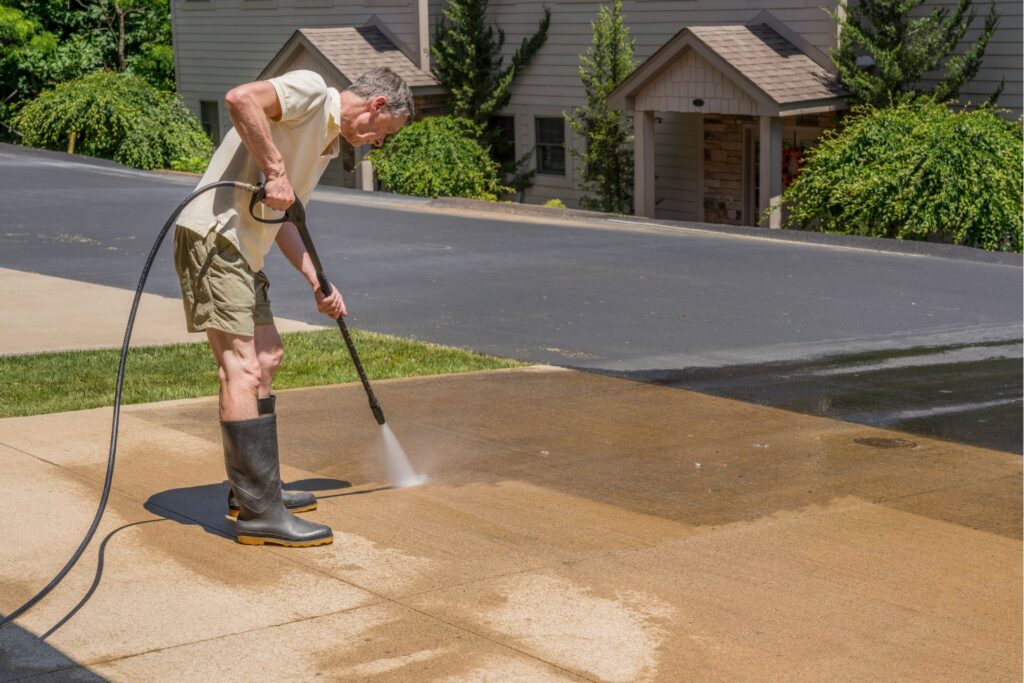
Alternatives To Sealing
Other Protective Measures
When it comes to protecting your concrete driveway, sealing isn’t the only option. Several alternative methods can offer comparable levels of protection, ensuring your driveway remains in excellent condition for years to come. Let’s explore some of these methods:
Coatings
Concrete coatings are an excellent alternative to traditional sealing. These coatings can include epoxy, polyurethane, or acrylic layers, each providing a durable and long-lasting barrier against the elements. Coatings not only protect against water and chemical damage but also enhance the aesthetic appeal of your driveway by adding a glossy or matte finish. Some coatings even come with non-slip additives, increasing safety in wet conditions.
Surface Treatments
Surface treatments such as silane or siloxane water repellents penetrate deeply into the concrete, providing a breathable yet waterproof barrier. These treatments are particularly effective in preventing water infiltration and subsequent freeze-thaw damage, which can be a significant issue in colder climates. Unlike coatings, surface treatments maintain the natural look of the concrete, which might be preferable for those seeking a more subtle protective measure.
Comparative Analysis
To determine the best protective measure for your concrete driveway, it’s essential to compare the effectiveness and cost of these alternatives versus traditional sealing.
Effectiveness
Coatings: Coatings offer robust protection, with epoxy and polyurethane being particularly resistant to abrasion and chemical spills. They can extend the lifespan of your driveway significantly, often lasting 5-10 years before needing reapplication. However, they require a meticulously prepared surface for optimal adhesion and performance.
Surface Treatments: Surface treatments are less visible and maintain the natural appearance of concrete. They are highly effective in preventing water penetration and minimizing freeze-thaw damage. While they may not offer the same level of chemical resistance as coatings, they are easier to apply and typically need reapplication every 3-5 years.
Cost
Coatings: The cost of coatings can vary widely depending on the type used. Epoxy coatings tend to be more expensive, ranging from $3 to $7 per square foot, including materials and labor. Polyurethane and acrylic coatings may be slightly less costly but still represent a significant investment.
Surface Treatments: Surface treatments are generally more affordable, with prices ranging from $0.50 to $2 per square foot. This lower cost makes them an attractive option for budget-conscious homeowners looking for effective protection without the higher upfront expense.
Choosing between sealing, coatings, and surface treatments ultimately depends on your specific needs and budget. Coatings provide a high level of protection and can enhance the appearance of your driveway, making them ideal for high-traffic areas or properties looking to boost curb appeal. Surface treatments, while less visually transformative, offer excellent water repellency and are a cost-effective alternative for those prioritizing functionality over aesthetics. By weighing the pros and cons of each method, you can make an informed decision that ensures your concrete driveway remains protected and attractive for years to come.

Expert Opinions And Case Studies
Expert Insights
When it comes to understanding the importance of sealing driveways, nothing beats insights from the experts themselves. Construction professionals and homeowners with firsthand experience offer invaluable perspectives. For instance, John Mitchell, a seasoned contractor with over 20 years in the industry, emphasizes, “Sealing your driveway is not just an added expense; it’s an investment in the longevity of your property. Unsealed driveways are more susceptible to cracks and damage, which can lead to costly repairs down the line.”
Homeowners who have opted to seal their driveways often share positive feedback. Jane Doe, a homeowner from Wellington, shares her experience: “After sealing our driveway, we noticed a significant reduction in cracks and wear. The driveway not only looks better but has held up incredibly well against the harsh winter weather.” Such testimonials highlight the tangible benefits and peace of mind that come with sealing a driveway.
Real-Life Examples
To further illustrate the impact of sealing versus not sealing driveways, let’s delve into some real-life case studies and anecdotes. Consider the case of two neighboring homes in Christchurch. Both homes were built around the same time and initially had similar driveway conditions. However, one homeowner chose to seal their driveway, while the other did not.
Over the span of five years, the differences became starkly apparent. The sealed driveway remained smooth and intact, showing minimal signs of wear. The homeowner reported fewer issues with weeds and water damage, attributing the driveway’s durability to regular sealing maintenance. In contrast, the unsealed driveway began to exhibit significant cracking and potholes, necessitating frequent repairs. The homeowner of the unsealed driveway faced higher maintenance costs and greater frustration due to the ongoing issues.
Another compelling example comes from a commercial property in Auckland. The property manager decided to invest in sealing the large parking area, despite the initial higher cost. Over the next decade, the sealed surface required minimal repairs and maintained a pristine appearance, which was crucial for the business’s image. This proactive approach not only saved money in the long run but also enhanced the property’s curb appeal, attracting more customers.
These case studies and expert opinions underscore the practical and financial benefits of sealing driveways. By preserving the integrity of the surface, sealing helps avoid costly repairs, enhances aesthetic appeal, and ultimately provides a better return on investment for homeowners and property managers alike.

FAQs: About Is it Necessary To Seal A Concrete Driveway
Why should I seal my concrete driveway?
Sealing your concrete driveway helps protect it from stains, weather damage, and general wear and tear. It creates a barrier that prevents oil, chemicals, and moisture from penetrating the surface, thereby extending the driveway’s lifespan and maintaining its appearance.
How often should I seal my concrete driveway?
It is generally recommended to seal a concrete driveway every 2-3 years. However, this can vary depending on the climate, the amount of traffic the driveway endures, and the type of sealer used.
What are the different types of concrete sealers?
The main types of concrete sealers are penetrating sealers, acrylic sealers, epoxy sealers, and polyurethane sealers. Each type has different properties and levels of protection, making them suitable for various applications and conditions.
Can I seal my concrete driveway myself?
Yes, sealing a concrete driveway can be a DIY project if you follow the proper steps and use the right materials. However, for best results, especially on large or heavily damaged driveways, hiring a professional is recommended.
What is the cost of sealing a concrete driveway?
The cost can vary widely based on the size of the driveway, the type of sealer used, and whether you do it yourself or hire a professional. On average, DIY sealing can cost around $0.15 to $0.25 per square foot, while professional services can range from $1.25 to $2.00 per square foot.
How long does it take to seal a concrete driveway?
The actual sealing process can take a few hours to a full day, depending on the size of the driveway and the type of sealer. However, the driveway needs to be thoroughly cleaned and dried beforehand, and the sealer needs adequate time to cure, which can take 24-48 hours.
What are the signs that my driveway needs to be resealed?
Signs that your driveway needs resealing include visible wear and tear, fading color, increased staining, and water no longer beads on the surface. If you notice these signs, it’s time to reseal your driveway.
What are the potential drawbacks of sealing a concrete driveway?
Potential drawbacks include the cost of materials and labor, the need for regular maintenance, and the risk of improper application leading to issues like peeling or uneven coverage. Additionally, some sealers can make the surface slippery when wet.
Are there alternatives to sealing a concrete driveway?
Yes, alternatives to sealing include using concrete coatings, surface treatments, or opting for maintenance methods such as regular cleaning and prompt repair of cracks and damages. However, these alternatives may not provide the same level of protection as sealing.
Does sealing a concrete driveway affect its appearance?
Yes, sealing can enhance the appearance of a concrete driveway by giving it a glossy or matte finish and intensifying its color. It can also help maintain the driveway’s new look by protecting it from stains and fading.
Conclusion
In conclusion, sealing a concrete driveway presents both benefits and drawbacks. Recapping the key points, sealing can enhance the durability and appearance of your driveway, protecting it from stains and the effects of harsh weather. However, it also comes with costs and maintenance requirements that some homeowners might find burdensome. Considering these factors, it’s crucial to weigh the advantages of prolonged driveway life and aesthetic appeal against the recurring expenses and upkeep. Ultimately, whether to seal your driveway should be a decision based on your unique needs and circumstances. We recommend evaluating your specific situation and consulting with a professional to make an informed choice that best suits your home. If you have further questions or need expert advice, don’t hesitate to reach out to local specialists who can provide personalized guidance.
About the Author:
Mike Veail is a recognized digital marketing expert with over 6 years of experience in helping tradespeople and small businesses thrive online. A former quantity surveyor, Mike combines deep industry knowledge with hands-on expertise in SEO and Google Ads. His marketing strategies are tailored to the specific needs of the trades sector, helping businesses increase visibility and generate more leads through proven, ethical methods.
Mike has successfully partnered with numerous companies, establishing a track record of delivering measurable results. His work has been featured across various platforms that showcase his expertise in lead generation and online marketing for the trades sector.
Learn more about Mike's experience and services at https://theleadguy.online or follow him on social media:
